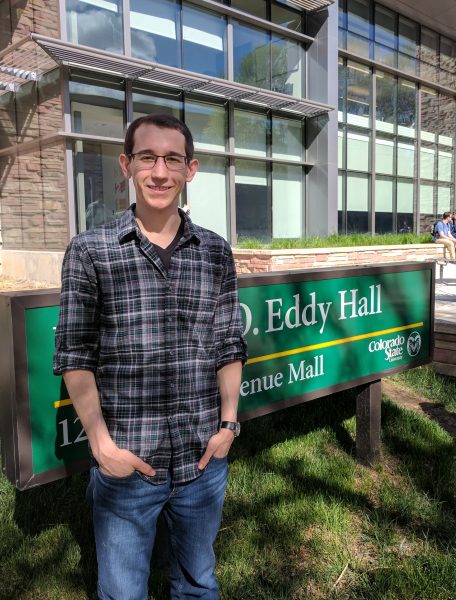
Like many high school graduates, Michael Cooley had no idea of what he wanted to do or which field he wanted to pursue in college. The Fossil Ridge High School graduate made the economical choice to attend Front Range Community College for his general education courses while working full-time. It was at Front Range that Cooley discovered philosophy for the first time.
“I found myself continually excited to go to class and learn about the big questions my introductory course was raising, especially those concerning the nature of knowledge and belief,” shares Cooley.
He also found ethics especially challenging and compelling. “Almost all of my views were productively challenged in a way they hadn’t been before. Positions that I thought were obvious became not-so-obvious. It was a really healthy experience for me,” explains Cooley.
Before pursuing philosophy further, Cooley wanted to research the myth that studying philosophy ‘just isn’t practical.’
“I began researching what can be done with a degree in philosophy. Rather than finding that a degree in philosophy is useless, I discovered that studying philosophy is extremely useful as preparation for many fields and careers. A lot of people don’t know this, but philosophy majors tend to do quite well financially by mid-career,” says Cooley.
Cooley found that CSU was a clear choice and, as a junior, declared the Philosophy major. Cooley has already put philosophy to good use at CSU in his independent studies with Professors Jeff Kasser and Moti Gorin, in both of which he investigated the intersection of philosophy and science, including behavioral science and psychology. Cooley worked with Kasser on a close study of the nature of explanations in the natural sciences, which can greatly affect research funding and what is included in the public-school curricula.
Cooley has also focused his research on one of Gorin’s areas of expertise: nudging. Research into nudging examines how differences in the way choices are framed can influence our decisions. Cooley has examined whether nudging individuals in ways that promote their own health and welfare throughout the healthcare field is morally permissible or morally objectionable.
Cooley‘s diligence both before and during his time at CSU has paid off. He is set to graduate this month with a near-4.0 GPA and was admitted to the graduate program in Philosophy, Politics, and Economics of Health at the University College London’s Health Humanities Centre. Cooley hopes that his studies in and graduation from this master’s program will lead directly to work in public policy in the U.K. or back in the States.
Cooley hopes to contribute to proving his original research question true: philosophy can, and does, have real-world impact.